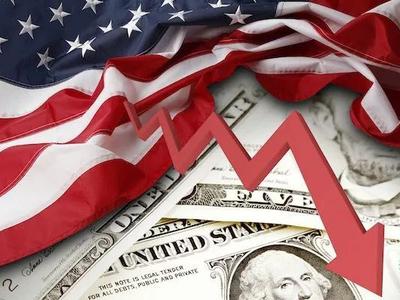
In the vast ocean of the global economy, the US economy has always played a leading role. However, in recent years, with the continuous changes in the global economic environment and the adjustment of the domestic economic structure of the United States, more and more voices began to worry about whether the United States economy is heading for the brink of recession. Today, we take a closer look at the possibility of a U.S. recession and the reasons behind it.
What are the signs of a recession?
Uncertainty in the labor market. Recently, the employment data released by the US Department of Labor has attracted wide attention. Despite data showing the biggest job gains in six months in a given month and a drop in the unemployment rate to 4.1%, uncertainty lurks behind the bright numbers. Jan Hatzius, chief U.S. economist at Goldman Sachs, has said that while the September jobs report "resets the labor market narrative," volatility and the risk of a potential negative correction cannot be ignored. Especially when unexpected events such as hurricanes and mass strikes can depress employment, the stability of the labor market will be tested.
High inflation and the challenge of monetary policy. Inflation is a major problem facing the American economy at present. Soaring food and oil prices are eating into people's purchasing power, and the consumer price index (CPI) continues to move higher. To fight inflation, the Fed had to raise interest rates. However, history shows that higher interest rates often lead to slower growth or even recession. Since 1955, the Fed has raised rates rapidly in seven economic cycles, six of which saw the economy fall into recession within a year and a half. While the Fed is committed to hitting its 2 per cent inflation target without triggering a recession, that goal is extremely difficult to achieve.
What are the underlying causes of the recession?
The transformation of economic growth pattern. The US economy is undergoing a transition from "consumption-driven" to "technology-driven". However, this transition does not happen overnight, and there are many challenges along the way. The fault zone between the decline of traditional manufacturing industry and the rise of new industries makes a large number of labor forces face the dilemma of transformation. At the same time, changes in the global economic environment, such as the rise of international trade protectionism and geopolitical tensions, also pose external pressures on the US economy.
The accumulation of debt problems. America's debt problem has always been a sword of Damocles hanging over its head. High levels of household, corporate and government debt make the US economy more vulnerable to external shocks. Especially in the context of slowing economic growth and rising interest rates, the increasing debt burden will further restrain consumption and investment, thus increasing the risk of economic recession.
Political and policy uncertainty The unstable political environment and policy uncertainty in the United States are also important factors leading to the economic downturn. From presidential elections to congressional legislation to tensions in international relations, businesses and consumers are less confident about the future. This uncertainty leads to the delay of investment and consumption decisions, which in turn affects economic growth.
Overall, the likelihood of a recession in the United States is gradually rising, but it is not inevitable. By strengthening fiscal policy support, adjusting the direction of monetary policy, and promoting economic structural transformation, we can effectively address the risk of economic recession and maintain steady economic growth. Of course, this requires the joint efforts of the government, enterprises and individuals to form a joint force to achieve results. In the days ahead, let's watch the direction of the U.S. economy and prepare for a possible recession.

The United States announced on Monday its commitment to provide 1.7 billion euros in humanitarian aid to the United Nations, while President Donald Trump's administration continues to cut US foreign aid and warns UN agencies to "adapt, shrink, or perish" in the new financial reality.
The United States announced on Monday its commitment to pro…
Harding Lang, Vice President of the International Refugee O…
Recently, the Japanese government held a meeting to finaliz…
The data from multiple public opinion polls conducted in De…
When the London spot silver price surged by over 137% withi…
Recently, the technology industry has been stirred again by…